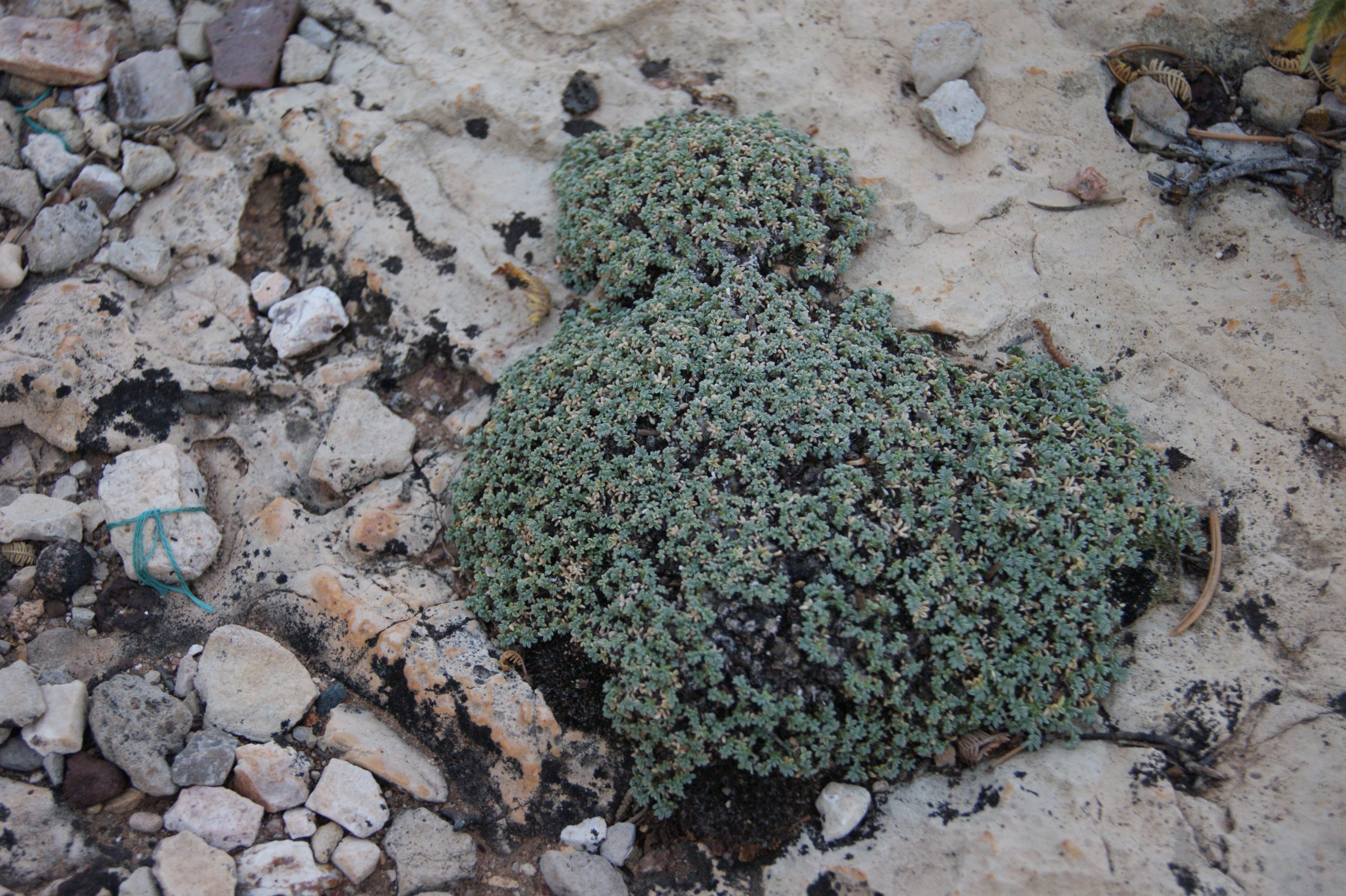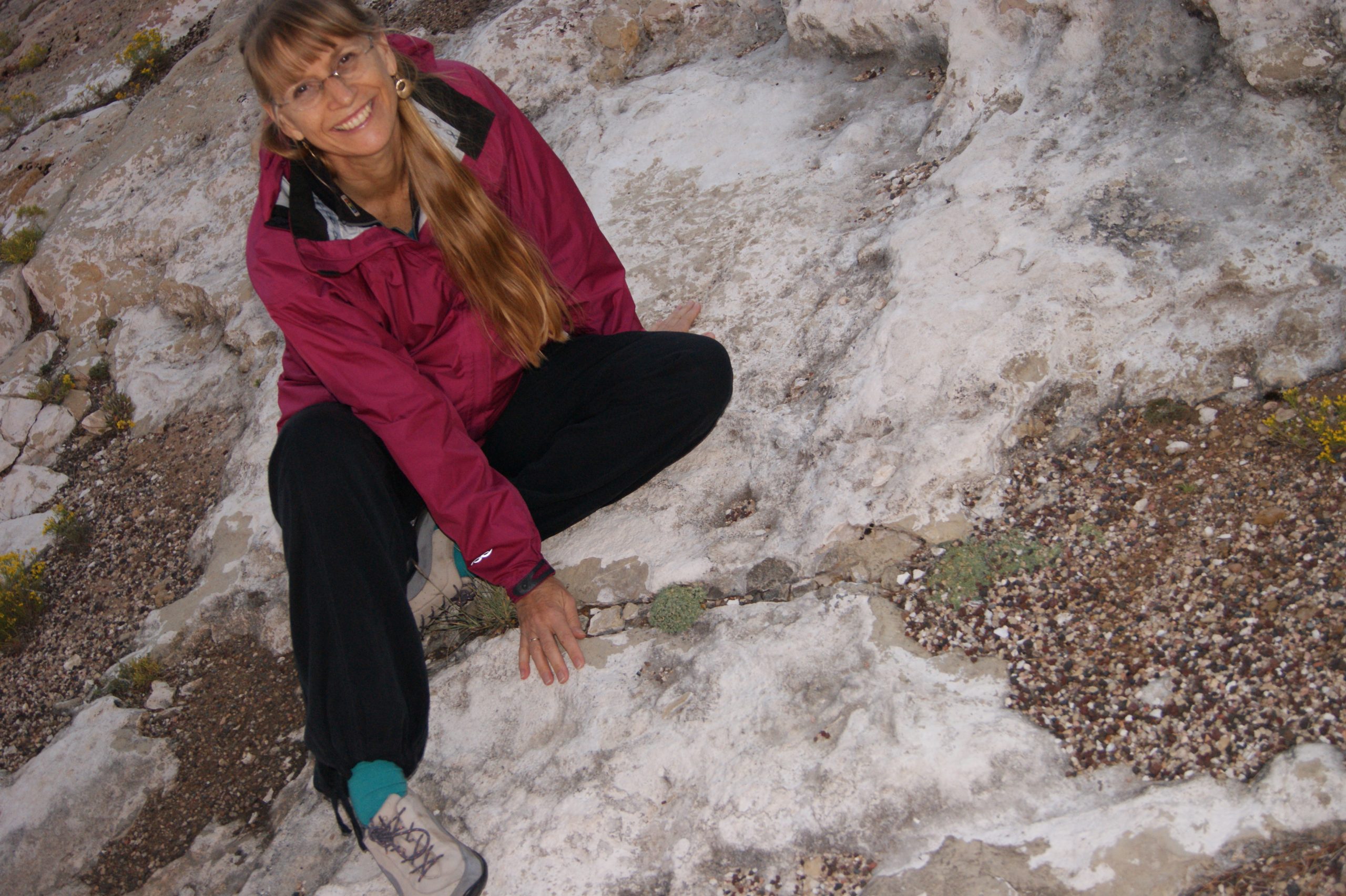![]()
April 2022
Dear CPC Colleagues,
I am looking forward to “Celebrating Conservation Milestones” with you all at the upcoming CPC National Meeting on May 5 and 6 at Denver Botanic Gardens. It has been fun for me to reflect on milestones from rare plant and personal perspectives. This letter announces a big personal milestone – my retirement.
I began working with the CPC Network in 1990, while working at The Arboretum at Flagstaff. In those days, I had good ecological training and many good staff members, plus collaborators willing to help find conservation solutions for rare plants of the region. One of those was the sentry milkvetch, a U.S. endangered plant, which was suffering major population declines when we first met. CPC colleagues helped me understand that the seed germination I observed from my first reintroduction of sentry milkvetch was low, but expected in field situations. The CPC network became my plant conservation support group – the place where shared experiences of triumph or discouragement could lead to refined solutions and better results for rare plants. Imagine my joy to hear that by 2016, the plant was making a comeback! The Grand Canyon National Park staff has restored habitat and reintroduced sentry milkvetch at three South Rim locations. They have collected thousands of seeds, propagated hundreds of plants, and discovered new populations! Now that’s a milestone!
Moving from Arizona to Miami was another big milestone along my career path. The Fairchild Tropical Botanic Garden team embraced plant reintroduction with gusto. Together we conducted over 85 reintroductions, which ultimately led to our contributions to the CPC synthesis publication, Plant Reintroduction in a Changing Climate: Promises and Perils.
Over the years, I have been blessed to make so many great plant conservation friends and so many amazing rare plants. I loved bringing us together to write the CPC Best Plant Conservation Practices to Support Species Survival in the Wild and I’m so happy to see the entire network’s great work displayed on the CPC Rare Plant Academy and in the upcoming CPC Applied Plant Conservation Online Course (look for modules of the latter this fall). I know that students and emerging professionals are happy to see those very special heartfelt publications and presentations, too.
It’s hard to express my gratitude to each of you for giving me the wonderful opportunity to lead this fine organization. I’m sure you will join me in wishing the CPC Board of Trustees the best of luck as they seek CPC’s next inspirational leader. I look forward to celebrating with you at the National Meeting and afterwards, I promise not to be too far away.
Best to you all and thank you for all you do to Save Plants,
![]()
Joyce Maschinski
President & CEO
-

Joyce sowing Jacquemontia reclinata. -

Sentry milkvetch (Astragalus cremnophylax var. cremnophylax) was Joyce’s first foray into both population modeling and reintroductions in the 1990s. -

Joyce poses with a sentry milkvetch (Astragalus cremnophylax var. cremnophylax), a species she helped direct toward recovery with reintroductions and management.
CPC’S Accomplishments Under Joyce Maschinski’s Leadership
On October 9, 2019, the CPC Board of Trustees appointed Dr. Joyce Maschinski President & CEO of CPC. Dr. Maschinski, a highly respected plant conservation scientist, previously held positions at The Arboretum at Flagstaff, AZ and Fairchild Tropical Botanical Garden in Coral Gables, FL and, most recently, served in the dual role as Director of Plant Conservation at San Diego Zoo Wildlife Alliance and V.P. of Science and Conservation of CPC. Joyce’s research on seed biology, plant demography, and reintroductions of dozens of rare plant species is internationally renowned. Her commitment to multidisciplinary, collaborative work is equally esteemed. Joyce’s scientific expertise and extraordinary leadership skills guided an important productive era for CPC.
While at CPC, Joyce facilitated the synthesis of our network’s tremendous brain trust and scientific accomplishments in publications and online resources. The CPC Best Plant Conservation Practices to Support Species Survival in the Wild are available online with instructional videos and a community forum as part of the CPC Rare Plant Academy. The guidelines highlight the methods our scientific network systematically deploys to conserve rare plants and set the gold standards of the industry. The inspirational and instructional videos available online are a way our scientists connect their experiences with rare plant conservation practitioners around the world. The forum provides an opportunity to engage in conversations about critical questions, and to deepen the awareness of challenges and solutions to plant conservation. Continuing our vision to provide resources for practitioners, CPC will launch the first modules of the Applied Plant Conservation Online Course in fall 2022 – a synthesis featuring many of the bright and dedicated CPC network scientists.
In addition, Joyce and colleagues published or initiated major syntheses of CPC plant conservation science to review plant reintroductions, to test seed longevity, and to revise our 10% collection rule. Coming together, we improve our understanding of these fundamental aspects of plant conservation practice and we save more plants than would ever be possible alone.
Since 2019, in acknowledgement of its vision, science, and leadership, Joyce and CPC assumed responsibility as the fiscal sponsor of the California Plant Rescue (CaPR). With generous funding from the State of California’s Biodiversity Initiative, California Plant Rescue is a 5-year seed banking and research initiative. Through efforts of the California Native Plant Society, a CPC Conservation Partner, the California legislature awarded $3.6 million towards seed banking, data management, and infrastructure aimed at bringing its rare and endangered plant species under conservation management. Since receiving this award, CaPR botanic gardens, many of which are CPC Participating Institutions, have secured 442 new rare plant populations in seed banks – even with the challenges of the COVID-19 pandemic. Modeling after California Plant Rescue, in 2020, CPC launched and is currently fundraising for a similar initiative in Florida.
During Joyce’s tenure, the National Collection of Endangered Plants increased from 1511 to 2208 rare plant species, and CPC’s network expanded from 57 to 71 Institutional Conservation Partners. Most recently, we welcomed the Southeast Grassland Initiative, United Plant Savers, and the Institute for Regional Conservation to our network. What’s more, in spring 2022, CPC launched new Conservation Partner categories for individuals: plant conservation professionals, emerging professionals, and students. These new partners not only expand our brain trust, but increase our ability to spread good plant conservation practice around the world.
These significant milestones position CPC for a bright future. The best is yet to come!